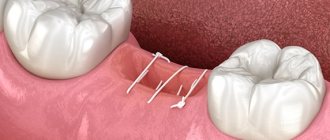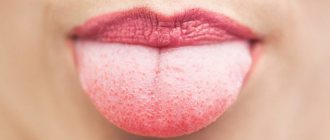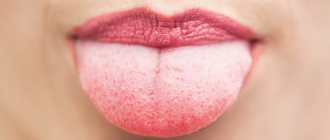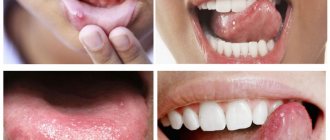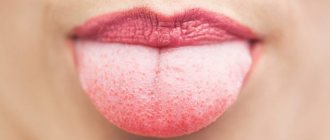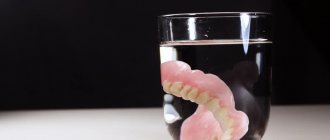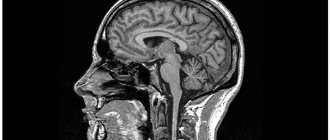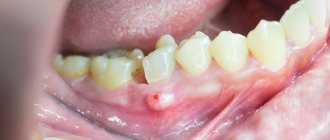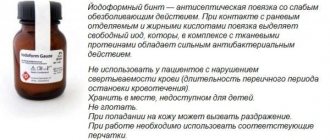Author of the article:
Soldatova Lyudmila Nikolaevna
Candidate of Medical Sciences, Professor of the Department of Clinical Dentistry of the St. Petersburg Medical and Social Institute, Chief Physician of the Alfa-Dent Dental Clinic, St. Petersburg
The taste of blood in the mouth is quite common. However, this symptom should never be ignored. Of course, the reasons for its appearance can be quite harmless, for example, a slight injury to the gums or eating food from clay dishes. However, an unpleasant taste can also indicate very dangerous pathologies. Let's figure out why a metallic taste may appear in the mouth and what to do to eliminate it as soon as possible, and most importantly, remove the reasons for its appearance.
Conventionally, all the causes of a pronounced metallic taste can be divided into three groups:
- Dental problems are usually associated with increased bleeding of the gums.
- Oral injuries.
- Internal pathologies.
Taking various medications often leads to a taste of blood in the mouth.
Oral injuries
If the mucous membrane is damaged, a little blood may enter the taste buds and, accordingly, a metallic taste appears in the mouth.
The causes of mucosal injury may be:
- tartar in the mouth;
- improper dental care, for example, using a brush that is too hard;
- incorrectly installed dentures;
- incorrectly installed braces.
Often the cause of the taste of blood in the mouth is a more significant injury, such as to the esophagus or throat. For example, a strong cough often leads to mucosal injuries. After an injury, a small amount of blood enters the mouth and causes an unpleasant taste.
What happens to blood circulation during exercise?
As soon as the body’s activity increases, part of the plasma from the blood leaves the blood vessels to fill the intercellular space of the working muscles, of which the maximum number is used when running. The volume of circulating blood decreases.
But tissues need increased doses of oxygen, water and nutrition, as well as accelerated removal of waste products. Therefore, the heart is forced to work harder, trying to pump as much blood as possible.
Prolonged load leads to heat loss. Therefore, the blood flow to the muscles gradually decreases. The body shunts blood to the skin to compensate for lost heat.
Muscles actively lose nutritional reserves (glucose), but produce more lactic acid , the accumulation of which leads to an imbalance in the acid-base balance.
The body successfully neutralizes and equalizes all these consequences of accelerated metabolism if the athlete follows the rules:
- training is carried out regularly, and the load is increased gradually;
- the body receives a sufficient amount of water and glucose;
- the athlete closely monitors his well-being and promptly responds to the signs that the body gives during a run.
People with pathologies of the cardiovascular system, excess weight and insufficient training should be especially careful about their health if they decide to include running in a complex of health-improving activities.
Thus, when running, the circulatory system undergoes complex physiological and chemical changes. If the loads correspond to the athlete’s state of health, then the heart gradually becomes more resilient, the blood vessels are more elastic, swelling and congestion disappear from the tissues, and blood pressure normalizes.
Internal pathologies
The most common diseases of internal organs that lead to the taste of blood in the mouth include:
- bronchitis;
- pneumonia (pneumonia);
- lung abscess;
- lungs' cancer;
- cystic fibrosis;
- tuberculosis;
- dysfunction of the heart;
- disruption of the gastrointestinal tract (GIT);
- diseases of the ENT organs.
Neurological diseases can also cause the taste of blood in the mouth. A signal travels through the nerve fibers of the brain to the taste buds; if its transmission is disrupted, an unusual taste may appear in the mouth.
However, neurological problems accompanied by a blood taste usually have other unpleasant manifestations. For example, they may be accompanied by headaches, hearing problems, hand tremors, trembling eyelids, and lumbago in certain areas of the face.
In very rare cases, the taste of blood in the mouth is caused by heavy metal poisoning. A similar problem often awaits workers in chemical laboratories and metal processing plants. Intoxication of the body is accompanied by other unpleasant symptoms - attacks of dry cough, nausea, aching limbs, swelling of the gums, and lack of appetite. Dysbacteriosis is also rarely the cause.
Bitterness in the mouth
Ulcer
Vomit
Diabetes
Gastritis
22660 08 February
IMPORTANT!
The information in this section cannot be used for self-diagnosis and self-treatment.
In case of pain or other exacerbation of the disease, diagnostic tests should be prescribed only by the attending physician. To make a diagnosis and properly prescribe treatment, you should contact your doctor. Bitterness in the mouth: causes of occurrence, what diseases it occurs with, diagnosis and treatment methods.
Definition
Very often, when a symptom such as a bitter taste in the mouth appears, patients do not rush to visit a doctor, but try to cope with it on their own, eating or washing down the unpleasant sensation, as well as using all kinds of rinses. In order to effectively get rid of bitterness in the mouth, you should consider the types and possible causes of its occurrence.
Types of bitterness in the mouth
In most cases, bitterness in the mouth is felt in the morning - immediately after waking up. After hygiene measures and eating, it may disappear until the next morning.
Sometimes the bitter taste returns after physical work, sharp bends or in a horizontal position.
Bitterness may occur after taking medications (antibiotics, analgesics, anti-inflammatory, anticonvulsants, lipid-lowering, antihypertensive, hypnotics) or certain foods (for example, pine nuts and almonds), which indicates that it is not associated with diseases.
Sometimes patients, especially older ones, complain about the bitter taste of any food.
Possible causes of bitterness in the mouth
Poor oral hygiene and inflammatory diseases
(most often gums) can lead to bitterness in the mouth In these cases, food debris, accumulating between the teeth and in the gum pockets, begins to decompose and gives an unpleasant taste, accompanied by a putrid odor.
A fairly common cause of bitter taste is the accumulation of combustion products of tobacco mixtures (tars) on the oral mucosa.
However, the main reason for complaints of a bitter taste is associated with reflux of bile into the esophagus and oral cavity.
Usually this is not the only symptom; sometimes it is accompanied by vomiting bile, belching, pain and a feeling of bloating in the stomach. Pain in the upper abdomen and right hypochondrium is also possible, sometimes it radiates to the back and/or the right subscapular region. The pain does not change or decrease after bowel movements, when changing body position, or after taking antacids (drugs that relieve heartburn).
The reason for the reflux of bile into the esophagus is most often impaired motility (dyskinesia) of the gastrointestinal tract and biliary tract. Bile is necessary for the emulsification of fats, which determines its production and entry into the duodenum.
When motility is impaired, bile from the duodenum flows back into the stomach (duodenogastric reflux).
And in cases where the lower esophageal sphincter is also open, bile enters the esophagus (duodenogastroesophageal reflux) and the oral cavity, causing a feeling of bitterness.
This occurs with duodenal ulcers, obesity, diabetes, a low-calorie diet, during pregnancy, and also when feeding through a nasogastric tube (a thin tube is passed through the nose into the stomach so that liquid food can be delivered. This is necessary if the patient does not can eat food in the usual way.).
Feeding through a nasogastric tube
Bile reflux also occurs due to its stagnation in the duodenum (duodenostasis) after removal of the gallbladder. Overflow of the duodenum leads to stimulation of the vomiting center and causes nausea, vomiting and a bitter taste in the mouth.
The feeling of bitterness in the mouth due to impaired motility of the biliary tract also accompanies a number of systemic diseases, which are treated by a rheumatologist.
Biliary dyskinesia is characteristic of hormonal disorders (including hormone replacement therapy). In case of disorders of the brain, in particular with damage to the medulla oblongata, dyskinesia is caused by a violation of the nervous and endocrine regulation of the biliary (bile) tract.
Which doctors should I contact if I have bitterness in my mouth?
If a feeling of bitterness appears in the mouth, the first thing you need to do is sanitize the oral cavity by visiting a dentist.
If there are no dental problems, you should contact us to receive a referral for the necessary tests. After interviewing the patient and receiving the results of blood and urine tests, treatment can continue or.
Diagnostics and examinations for the appearance of bitterness in the mouth
If the examination does not reveal dental problems, as well as signs of rheumatological (systemic) diseases, the doctor prescribes the patient clinical and biochemical blood tests to assess the level of liver enzymes (ALT, AST), bilirubin and alkaline phosphatase, and a general urine test.
Dental diseases
The most common cause of the taste of blood in the mouth remains dental diseases and lip lesions. Diseases are easily recognized by reddish-colored saliva, inflamed oral mucosa, and the presence of ulcers and erosions.
The main dental problems that cause the taste of blood in the mouth are:
- gingivitis - inflammation of the gums;
- stomatitis - damage to the mucous membranes;
- cheilitis - lip injuries;
- periodontitis is inflammation of the periodontal tissues.
Blood and circulation
Blood is a type of connective tissue that continuously circulates in one direction in a closed circle - the circulatory system.
The structure of this system includes:
- Numerous vessels (arteries, veins, capillaries).
- The heart continuously and rhythmically pumps blood.
Arterial blood enriched with oxygen enters the body from the heart. The venous system returns back, having collected carbon dioxide from the tissues.
metabolism accelerates sharply , and the body strives with all its might to maintain the usual balance of processes. And here the relationship between running and blood comes to the fore.
What to do if you taste blood in your mouth?
First, you should contact your dentist. The doctor will confirm or deny dental diseases, prescribe effective gum treatment or refer you to another specialist.
If the taste of blood in the mouth appears for a short time, you can eliminate it using traditional methods of treatment. For example, rinse your mouth with water and lemon juice or a water-salt solution. You can also get rid of the unpleasant taste using a chamomile solution. To prepare it, you need to pour 5 g of dried flowers into 500 ml of water and cook for 7-10 minutes in an enamel bowl. The product must be infused for an hour.
A decoction of oak bark will also help get rid of the taste of blood in your mouth. To prepare it, 10 grams of raw material should be steamed with boiling water and left for about an hour.
An effective means of treating gum inflammation and eliminating such unpleasant symptoms as the taste of blood in the mouth is ASEPTA Active mouth rinse. This combined action remedy is used for infectious and inflammatory diseases of the oral cavity, and also quickly relieves bleeding and inflammation of the gums. The rinse has an antimicrobial, anti-inflammatory and analgesic effect, does not contain alcohol, fluorine and dyes, so it is perfect for treating even those with the most sensitive tissues.
What should you do if you have a bloody taste after running?
For physiological reasons, no treatment is required!
Mouth injuries should be rinsed and treated with healing and disinfecting solutions, and protected from hot and spicy foods. To do this, consult your dentist.
But if you have other symptoms: fever, cough, nausea, abdominal pain, frequent bleeding - be sure to consult a doctor for a full examination!
In addition to the listed diseases, the following are possible: vitamin deficiency, metal poisoning, tumors. Take care of your health!
Clinical researches
The effectiveness of various ASEPTA mouth rinses has been repeatedly proven clinically.
For example, it has been clinically proven that the two-component mouth rinse ASEPTA ACTIVE more effectively combats the causes of inflammation and bleeding compared to single-component rinses - it reduces inflammation by 41% and reduces bleeding gums by 43%.
Sources:
- The role of anti-inflammatory rinse in the treatment of periodontal diseases (L.Yu. Orekhova, A.A. Leontyev, S.B. Ulitovsky) L.Yu. OREKHOVA, Doctor of Medical Sciences, Prof., Head of Department; A.A. LEONTIEV, dentist; S.B. ULITOVSKY, Doctor of Medical Sciences, Prof. Department of Therapeutic Dentistry of St. Petersburg State Medical University named after. acad. I. P. Pavlova
- The effectiveness of the use of Asept “adhesive balm” and Asept “gel with propolis” in the treatment of chronic generalized periodontitis and gingivitis in the acute stage (Municipal Dental Clinic No. 4, Bryansk, Kaminskaya T. M. Head of the therapeutic department Kaminskaya Tatyana Mikhailovna MUZ City Dental Clinic No. 4, Bryansk
- The effectiveness of complex therapy in the treatment of periodontal diseases. (Department of Periodontology of the SF State Budgetary Educational Institution of Higher Professional Education MGMSUIM.A.I. Evdokimova. Moscow.) Nemeryuk D.A. - Associate Professor, Candidate of Medical Sciences, Dikinova B.S. - Postgraduate Student of the Department of Periodontology of the SF Tsargasova M.O. - Postgraduate Student of the Department periodontology SF Yashkova V.V. - postgraduate student of the Department of Periodontology of the SF Department of Periodontology of the SF State Budgetary Educational Institution of Higher Professional Education MGMSUIM.A.I.Evdokimova. Moscow
conclusions
Running will only be beneficial if the loads are selected individually and training is carried out regularly - 2-4 times a week. If a person has problems with the cardiovascular system, then additional monitoring of well-being with the help of medical tests is necessary.
Lekomtsev Denis Nikolaevich
Athlete - triathlete (
